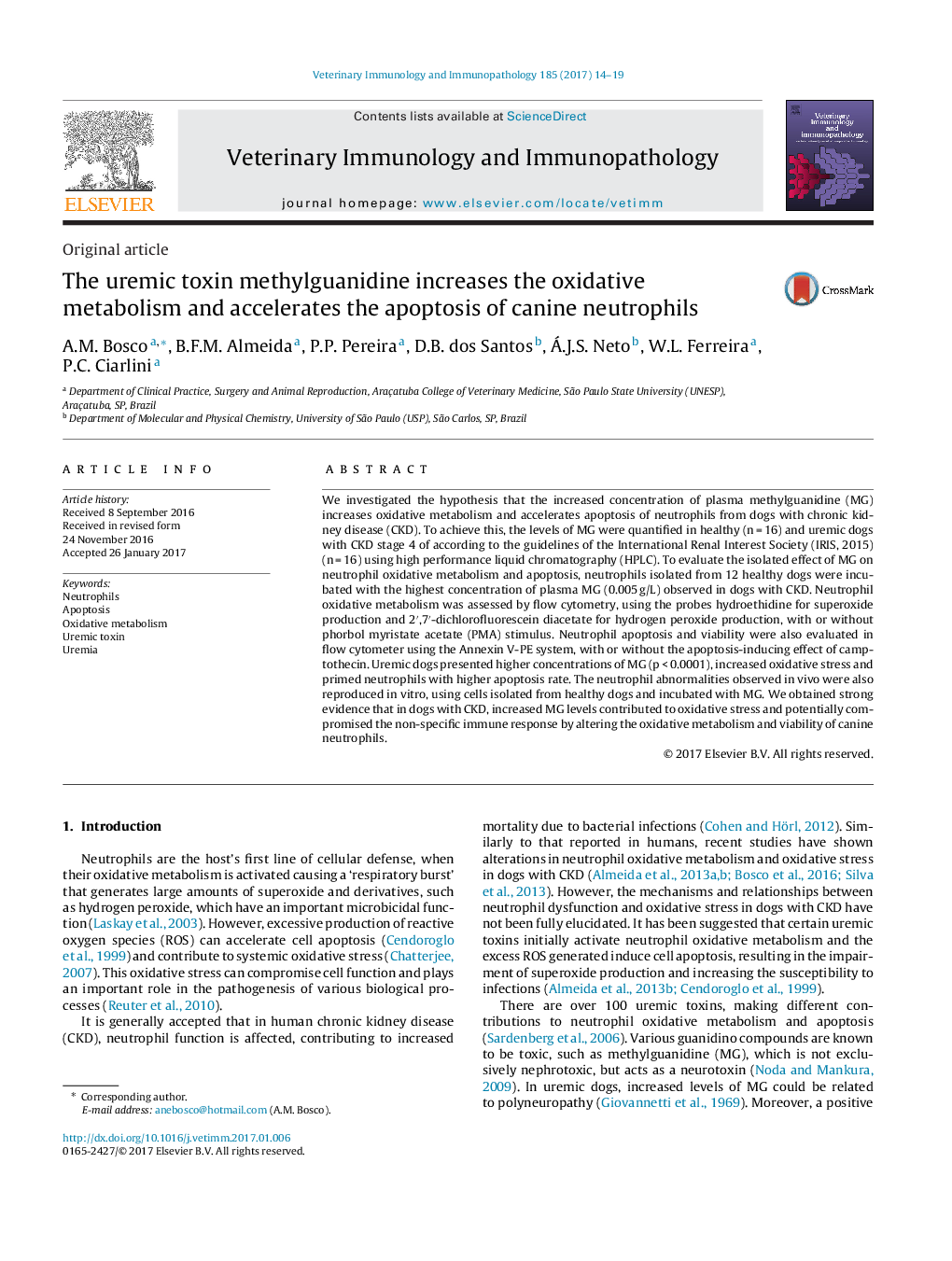| Article ID | Journal | Published Year | Pages | File Type |
|---|---|---|---|---|
| 5544779 | Veterinary Immunology and Immunopathology | 2017 | 6 Pages |
Abstract
We investigated the hypothesis that the increased concentration of plasma methylguanidine (MG) increases oxidative metabolism and accelerates apoptosis of neutrophils from dogs with chronic kidney disease (CKD). To achieve this, the levels of MG were quantified in healthy (n = 16) and uremic dogs with CKD stage 4 of according to the guidelines of the International Renal Interest Society (IRIS, 2015) (n = 16) using high performance liquid chromatography (HPLC). To evaluate the isolated effect of MG on neutrophil oxidative metabolism and apoptosis, neutrophils isolated from 12 healthy dogs were incubated with the highest concentration of plasma MG (0.005 g/L) observed in dogs with CKD. Neutrophil oxidative metabolism was assessed by flow cytometry, using the probes hydroethidine for superoxide production and 2â²,7â²-dichlorofluorescein diacetate for hydrogen peroxide production, with or without phorbol myristate acetate (PMA) stimulus. Neutrophil apoptosis and viability were also evaluated in flow cytometer using the Annexin V-PE system, with or without the apoptosis-inducing effect of camptothecin. Uremic dogs presented higher concentrations of MG (p < 0.0001), increased oxidative stress and primed neutrophils with higher apoptosis rate. The neutrophil abnormalities observed in vivo were also reproduced in vitro, using cells isolated from healthy dogs and incubated with MG. We obtained strong evidence that in dogs with CKD, increased MG levels contributed to oxidative stress and potentially compromised the non-specific immune response by altering the oxidative metabolism and viability of canine neutrophils.
Related Topics
Life Sciences
Agricultural and Biological Sciences
Animal Science and Zoology
Authors
A.M. Bosco, B.F.M. Almeida, P.P. Pereira, D.B. dos Santos, Á.J.S. Neto, W.L. Ferreira, P.C. Ciarlini,
